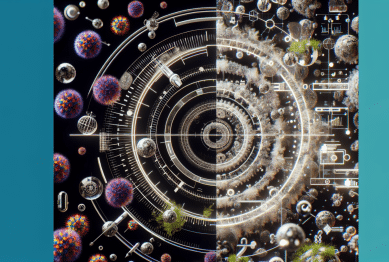In today’s fast-paced world, the obsession with speed often leads us to believe that working faster equates to achieving more. However, the true key to maximizing productivity in deep work might lie in the complete opposite—slowness. But why should we embrace slowing down when the world seems to reward the quickest and most efficient? The answer is simple: deep work requires mental focus and presence, which can only be achieved when we allow ourselves the time and space to fully immerse in the task at hand.

Understanding Deep Work
Before diving into how slowness plays a critical role, it’s essential to understand what deep work really means. Cal Newport, in his bestselling book Deep Work: Rules for Focused Success in a Distracted World, defines it as “professional activities performed in a state of distraction-free concentration that push your cognitive capabilities to their limit.” In a world full of distractions, deep work has become increasingly rare and valuable.
Deep work requires extended periods of uninterrupted focus, allowing individuals to produce high-quality and high-quantity results. Whether you are working on a complex project, coding, writing, or crafting a business strategy, deep work demands complete immersion and undistracted attention. This is where slowness comes in.
Why Slowness Enhances Deep Work
- It Maximizes Cognitive Focus
When we rush, our brains switch between tasks quickly, leading to cognitive fatigue. Multitasking may feel productive in the moment, but it ultimately reduces focus, hinders performance, and increases the likelihood of errors. Slowness, on the other hand, allows the brain to focus deeply on one thing at a time, promoting stronger concentration and more significant achievements. - Reduces Mental Burnout
The culture of speed and hustle can be draining. Constantly pushing yourself to work faster not only exhausts your mental resources but also diminishes creativity and efficiency over time. By intentionally slowing down, you give yourself the opportunity to recharge, think more clearly, and make better decisions, reducing the risk of burnout. - Enhances Creative Problem-Solving
Deep work involves tackling complex problems that often require creative and innovative solutions. Slowing down allows your mind to enter a state where it can explore different avenues and connections more freely. In contrast, rushing through tasks limits the opportunity for creativity to emerge, resulting in surface-level solutions that miss the deeper insights. - Improves Emotional Well-Being
When we take the time to slow down, we engage more with our work, enjoy the process, and improve our emotional well-being. We’re less likely to feel overwhelmed, stressed, or dissatisfied. Rather than feeling pressured by deadlines and the need to “do more,” we can feel accomplished by giving our full attention to one task, making the work more enjoyable and rewarding.
How Slowing Down Increases Productivity in the Long Run
It might seem counterintuitive that working more slowly can actually increase your productivity. However, when you focus on the process rather than the end goal, you allow your mind to truly dive into the depth of the work, leading to more effective outcomes. Here’s how:
- Better Quality of Work
When you focus on the process and dedicate time to think things through, your work quality improves. Mistakes are less frequent because you’re fully absorbed in what you’re doing. Whether you’re writing a report, designing a product, or coding, slowing down allows you to get things right the first time, saving time on revisions and corrections. - Long-Term Retention and Mastery
By embracing slowness, you take the time to reflect on your work, review your results, and learn from your mistakes. This process leads to mastery over time. The more you engage deeply, the better you get at the task, increasing efficiency in the long term. It’s about deep practice, where continuous, slow engagement leads to expertise. - Improves Decision-Making
Hasty decisions often result in regret, rework, and wasted resources. Slowing down and taking the time to gather relevant information, analyze it thoroughly, and reflect can help you make better decisions. In high-stakes situations, this measured approach is crucial for success. - Higher Sustainability
By working slower and focusing on sustainable practices, you ensure that your productivity is not short-lived. Unlike the typical “rush and burn” mentality, slowing down can help you build momentum over time, creating a pace that you can sustain and maintain without exhausting yourself. This makes it easier to stick with deep work for long periods, leading to more consistency and a greater output in the long term.
The Importance of Rest and Recovery in Deep Work
A common misconception about deep work is that it requires constant engagement, and taking breaks might disrupt the flow. However, rest and recovery are integral to maintaining high performance. The body and brain need time to recover and recharge, which can only happen when we slow down.
The key to truly engaging in deep work is balance. You don’t have to work relentlessly for hours on end without rest. Slowing down doesn’t just mean working more slowly but also giving yourself time to disconnect and recover. This recovery period allows the brain to process information more effectively, leading to better long-term results.
Incorporating Slowness into Your Work Routine
To integrate slowness into deep work, you don’t need to radically change your entire workflow. Here are practical strategies to help:
- Create Distraction-Free Zones
Set aside specific times and places for deep work. Ensure that these periods are free from distractions such as emails, phone notifications, and social media. This physical and mental space allows you to work more slowly but with much greater focus. - Use Time Blocks Effectively
Rather than overwhelming yourself with a long to-do list, break your day into time blocks dedicated solely to one task. During these blocks, allow yourself to work at a slower pace without feeling pressured to rush. - Practice Mindfulness and Reflection
Mindfulness techniques, such as meditation or simple breathing exercises, can help center your focus. By practicing mindfulness, you train yourself to stay present and engaged with your work, which enhances your ability to perform deep work. - Learn to Say No
Part of embracing slowness is rejecting the urge to take on too much. Saying no to additional tasks allows you to slow down, focus deeply on what matters, and prevent overwhelm. - Plan for Downtime
By scheduling breaks and allowing yourself free time, you give your mind a chance to refresh and recuperate. This practice ensures that you have the energy to engage in deep work the next time you dive into it.
The Bottom Line: Embrace the Power of Slowness
In the modern world, speed and productivity are often seen as synonymous. However, slowing down during deep work is a powerful tool to not only enhance focus but to create a deeper level of satisfaction in your work. By choosing quality over quantity, and by embracing slowness as an ally, you can increase your cognitive abilities, reduce stress, and achieve long-term success. Slow down, and you’ll find that you’re able to accomplish more, more meaningfully.
This approach is not just about improving productivity but creating a fulfilling and sustainable professional life. Slowness allows you to be present in the moment, take pride in your work, and avoid the burnout that often comes from working at a frenetic pace. It’s time to shift the narrative: working slower might just be the key to working smarter.
References
- Newport, C. (2016) Deep Work: Rules for Focused Success in a Distracted World. Grand Central Publishing. Available at: https://www.hachettebookgroup.com (Accessed: 30 July 2025).
- Jha, A. P., Krompinger, J., and Baime, M. J. (2007) ‘Mindfulness training modifies subsystems of attention’, Cognitive, Affective, & Behavioral Neuroscience, 7(2), pp. 109-118. Available at: https://link.springer.com (Accessed: 30 July 2025).
- Goetz, A. (2017) ‘The Psychology of Deep Work’, Psychology Today, Available at: https://www.psychologytoday.com (Accessed: 30 July 2025).









